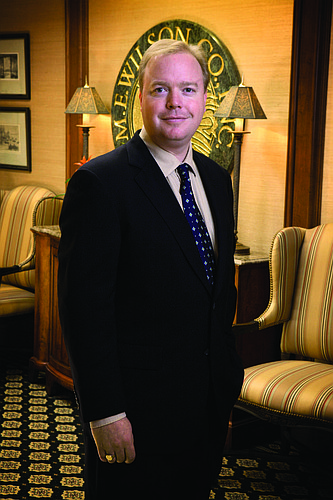INDUSTRY OUTLOOK: INSURANCE
After five years without a hurricane, business owners along the Gulf Coast can rest a bit easier regarding property insurance. That's good, because they now must turn their attention to another coverage matter — health care for employees.
Medical and related benefits, provided to workers as a perk rather than an entitlement, gained increased attention over the past year since the long-debated health care reform package at the top of President Barack Obama's agenda was signed in March. The legislation has come under public and court scrutiny ever since, with most recently a federal judge in Virginia striking down a provision that required all Americans to get health insurance by 2014.
More changes to the Patient Protection and Affordable Care Act, aka ObamaCare, are expected over the next few years, especially approaching the 2012 presidential election, so insurance agents say educating clients will be a priority in the coming year. In turn, those clients will need to better explain to their employees what will be expected from them in terms of higher premiums, raised deductibles and co-insurance.
“Companies need to react quickly to these changes,” says Jim Rogan, senior vice president of corporate benefits with M.E. Wilson Insurance in Tampa. “Not having good communication is worse than anything else.”
Agents are continuing to drive their clients toward consumer-driven health plans, which allow employees to determine how much or little coverage they'd like to carry for themselves and their dependents. Being proactive could help stabilize premiums that have increased significantly in recent years, largely in anticipation of Washington reforms.
“If you're a business owner, you need to start looking at alternative ways to fund your health-care coverage,” advises Ray Bouchard, chairman and president of Clearwater-based Bouchard Insurance, which also has offices in Sarasota and Fort Myers. “You can't accept 30% to 40% increases year in and year out, especially in this economy.”
Bouchard says more companies are funding employees' health savings accounts as an incentive to taking more responsibility over their coverage. “You try to shift your costs from the uncontrollable to the controllable,” he says.
Rogan points out that some sort of government health care option is needed following the recession, especially while Florida's jobless rate remains at 12%.
“An employer-based health-care system doesn't work because not everyone is employed,” he says, noting that employers offer health insurance plans to recruit and retain workers.
During a panel discussion hosted earlier this year by the Greater Tampa Chamber of Commerce, Dan Farrar, president of Resource Innovations in Fort Myers, says thousands more pages of regulations are likely to be generated following the 2,000 or so that were initially signed into law. Exchanges will be available at the state level, he says, yet employers still must attempt to offer benefits that are more affordable.
The penalties for failing to do so could be fierce, he says.
For example, a company that allows any one employee to go out to the state exchange would have to pay $2,000 for every employee, with the first 30 workers being exempted. “If the law didn't have any teeth, nobody would comply,” Farrar says.
While health care is expected to remain a hot topic in the months ahead, companies are getting some relief in other areas, particularly workers' compensation insurance.
Over the last seven years, Florida has gone from having the highest workers' comp premiums in the country to the lowest, a drop of nearly 65%, with Gov.-elect Rick Scott, a former health care executive, pledging to lower those costs by another 35%.
“A rate reduction of that magnitude would likely require significant reductions in benefits paid to injured workers,” says Thomas Maida, a managing partner with Foley & Lardner in Tallahassee and a member of the law firm's insurance industry team. He adds that the savings from 2003 workers' comp reform legislation may have run its course, so it may be up to Scott and the Florida Legislature to enact further benefit reforms.
“We're seeing that pendulum swing back,” Bouchard says. “The carriers are taking a more conservative approach on workers' comp insurance. We haven't seen that in years.”
As for property insurance, agents say the situation has become more stable after several years of threatened cancellations and premium hike requests by major carriers.
State Farm, the largest insurer of homes in Florida, is still operating here more than a year after telling state officials and policyholders it would pull out of the state.
Bouchard anticipates that the Legislature will revisit a property insurance measure that passed both chambers before being vetoed by Gov. Charlie Crist. He says the state would be better off with a free-market system of property insurance sales that does not depend on Citizens Property Insurance Corp. or the state's Hurricane Catastrophe Fund to cover losses as a last resort.
Property owners may have become complacent about homeowners and other property coverage because Florida has gone without a hit from major storms since 2005. However, agents advise vigilance, with forecasters predicting 17 named storms and nine hurricanes in 2011.






